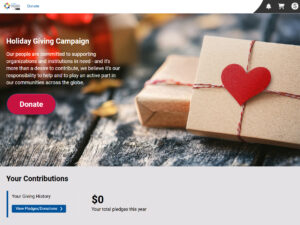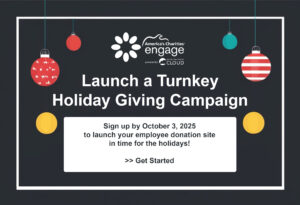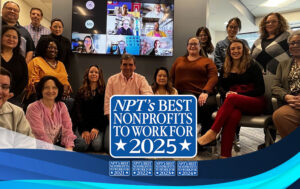Alzheimer’s Disease Research (ADR), a BrightFocus Foundation Program | November 8, 2017
Join our Quest for an Alzheimer’s Cure
Alzheimer’s disease is an overwhelming degenerative condition for individuals and the family members who care for them. Yet there is hope in the promise of new research. Donors can help bring that promise to fruition by supporting innovative, high-quality scientific research through BrightFocus Foundation’s Alzheimer’s Disease Research program.
The Need for Alzheimer’s Research
Every 66 seconds, someone in the United States develops Alzheimer’s disease, a degenerative disorder that irreversibly destroys brain function over time. The most common form of dementia, it’s the 6th leading cause of death in the U.S., but the only leading cause of death that has significantly increased in recent years. Alzheimer’s has no known cure.
Americans are more and more likely to be directly affected by Alzheimer’s—either as a patient or as a caregiver for a family member with the disease. This is partly due to demographics: the large Baby Boom generation is now reaching the risk period for this age-related disease, turning age 65 at a rate of 10,000 per day. In general, people are also living longer, driving up the number of Alzheimer’s cases. More than 5 million Americans have Alzheimer’s now, and by 2050, this number could explode to as high as 16 million.
The disease is hard on families, who provide the majority of caregiving. Many caregivers, about 66 percent, live with the care recipient in the community. More than 15 million Americans provide unpaid care for people with Alzheimer’s disease and other dementias. This caregiving can be difficult—family and other unpaid caregivers may struggle with high levels of emotional stress, depression, and financial pressure.
Supporting Alzheimer’s Disease Research to Advance Science
Alzheimer’s Disease Research (ADR), a BrightFocus Foundation program, is working tirelessly to help all of those impacted by Alzheimer’s, by funding bold, innovative scientific research around the world.
“Only through research can we ultimately prevent, detect, and treat Alzheimer’s in our lifetime,” says BrightFocus President and CEO Stacy Haller. “It’s imperative that we change the trajectory of this disease.”
Scientists estimate that a minimum of $2 billion per year in research funding is needed if the U.S. is to reach the national goal of preventing and effectively treating Alzheimer’s disease by the year 2025. Right now, the U.S. government is spending far less, which raises the risk of more human and economic tragedy.
In this environment, the work of ADR is more important than ever: convening world-class scientific review committees to identify the most promising science on Alzheimer’s; allowing researchers to take risks not funded elsewhere, expanding our understanding of the disease, and moving us closer to a cure.
“In supporting cutting-edge research and investing in the next generation of bright young minds, we’re funding the future we want for our loved ones and ourselves,” says BrightFocus President and CEO Stacy Haller.
Alzheimer’s Disease Research recently funded more than $8.4 million to 38 new research projects worldwide. Thanks to donors, there is promising research underway across a wide range of approaches. Some of the research topics that donations help support include studies on
- How Alzheimer’s starts, before symptoms appear
- Regulation of immune factors to fight the disease
- The role of blood vessels and inflammation
- Whether lifestyle factors affect your risk
- New imaging tools to examine the brain
- New or “repurposed” drug treatments
Workplace Giving Programs on Alzheimer’s Research
You can support this work by donating to Alzheimer’s Disease Research through your employer’s workplace giving program. (The CFC program number is #30518 if you’re a military or federal employee participating in the Combined Federal Campaign). Payroll pledges made through employer-sponsored charitable giving programs represent a cost-effective and nearly effortless way to support the vital work of Alzheimer’s Disease Research.
If your company would like to start a workplace giving program to support ADR, click here. ADR works through America’s Charities, a workplace giving federation, to promote its mission to employers’ workplace giving programs nationwide. America’s Charities has a portfolio of solutions designed to help large and small organizations give back to the causes they care about.
No matter what the size, contributions to Alzheimer’s Disease Research help support innovative research projects.
Here are just a few examples of what individual donors and employers can achieve:
- $20/week: $1,000 ($19.23 per week through payroll giving) supports the sequencing of a person’s entire DNA for research purposes.
- $20-$40/week: $1,000 to $2,000 ($19.23 – $38.46 per week through payroll giving) helps send a promising young researcher to an international science conference to share research results—a critical venue for analysis of discoveries.
- $100 – $200/week: $5,000 to $10,000 ($96.15 – $192.31 per week through payroll giving) helps pay for the costs of supplies for a protein assay experiment, where researchers can identify levels and activities of proteins linked with the disease. Or it can fund The BrightFocus Foundation Resource Center, which supports the overall work of BrightFocus Foundation by developing free publications and resources, and serving as a liaison between people living with Alzheimer’s disease, medical professionals, health organizations, and government agencies.
- $200-$400/week: $10,000 to $20,000 ($192.31 – $384.62 per week through payroll giving) helps pay for the costs of supplies for a mass spectrometry protein identification experiment, which identifies proteins that can be used by researchers in their work.
- $1,000/week: $50,000 ($961.54 per week through payroll giving) helps support one year of a postdoctoral fellow’s research. A single employer and its employees can raise this amount through the collective power of workplace giving and matching gifts.
If you want to volunteer to help Alzheimer’s researchers, play the free online Stall Catchers game. This is a project of the ADR-funded EyesOnALZ initiative to speed up the pace of Alzheimer’s research. Anyone can play the game and help researchers by spotting stalled capillaries in images of the brain. Researchers estimate that this “crowd-sourcing” project will save them an enormous amount of documentation time, possibly speeding up the process of discovery by many years. In the first 30 days alone that this project was live, nearly 1,000 citizens did the equivalent of 14 weeks of analysis in the lab. Collectively, the crowd has annotated about 40,000 images, equal to about 40 weeks or 10 months of lab analysis time.
To learn more about Alzheimer’s Disease Research’s important work, visit www.brightfocus.org/alzheimers.
Get Resources and Insights Straight To Your Inbox
Explore More Articles
Make the Holidays More Meaningful: Engage Your Team with Employee Giving Technology
The holiday season is a time for connection, gratitude, and giving back. For employers, it’s also an ideal moment to strengthen workplace culture, deepen employee…
Read ArticleLaunch a Turnkey Holiday Giving Campaign
Sign up by October 3, 2025 to launch your employee donation site in time for the holidays! Give employees a simple, meaningful way to make…
Read ArticleData Processor & Customer Service Representative, Charitable Funds Management Solutions
Reporting Structure: Director, CFMS Term: October 2025 to February 2026 Schedule: Full-Time; Monday-Friday up to 37.5 hours per week. Rate: $20 per hour Overview of…
Read ArticleGet Resources and Insights Straight To Your Inbox
Receive our monthly/bi-monthly newsletter filled with information about causes, nonprofit impact, and topics important for corporate social responsibility and employee engagement professionals, including disaster response, workplace giving, matching gifts, employee assistance funds, volunteering, scholarship award program management, grantmaking, and other philanthropic initiatives.





